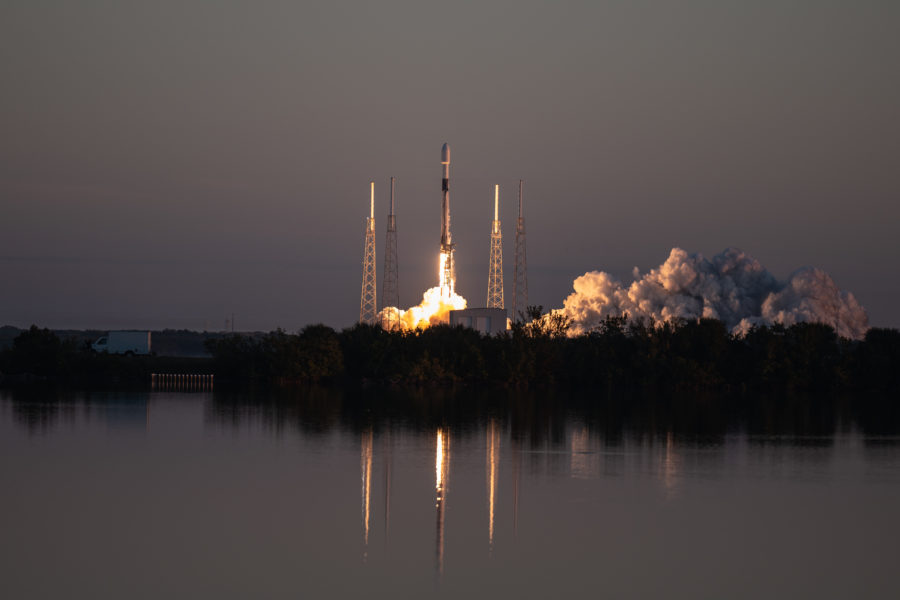The Space Force is opening up competition for rocket launches with a “dual-lane approach,” potentially giving smaller companies a chance to break into the launch business, according to a new draft request for proposals released Feb. 16.
In publishing the draft RFP, Space Systems Command announced an industry day event Feb. 28-March 1 to discuss Phase 3 of its National Space Security Launch program.
Under “Lane 1” of the program, SSC will award indefinite-delivery/indefinite quantity (ID/IQ) contracts to multiple providers, enabling selected vendors to offer launch services beginning in fiscal 2025. The awards will cover a five-year span, with an option to renew for a second five years. To enable as many participants as possible, the Space Force will re-open the solicitation annually so that new competitors can “on-ramp” into the program.
“Lane 2,” meanwhile, is open only to launch providers that already have fully-certified launch systems. In this part of its program, SSC will award ID/IQ contracts to two launch providers capable of reaching all orbits and providing “mission unique services, launch services support, fleet surveillance, early integration studies, and special studies.”
This strategy “provides access to diverse commercially available systems, increases resiliency through alternate launch sites and streamlined integration timelines, … enables supply chain stability, and enhances affordability for the most stressing National Security Space missions,” said Maj. Gen. Stephen Purdy, the Space Force’s program executive officer for Assured Access to Space, in a statement.
The prior Phase 2 contracts, awarded in August 2020, went to United Launch Alliance and SpaceX and shut out challengers Northrop Grumman and Blue Origin. That contract covered launch orders through fiscal 2024, although the actual launches will take place as late as 2027.
Ever since that award, however, the Space Force has been seeking feedback on how to work with new entries to the launch market, beginning with a Request for Information to industry, seeking feedback on how it could work with launch companies of all sizes and indicating that it might establish “a research, development, test, and evaluation program to accelerate the development of transformational commercial space access, mobility, and logistics technologies that can be on-ramped when available.”
And while ULA and SpaceX are the only companies to have won NSSL launch contracts, others have emerged as eager contenders, especially for launches that only have to reach low-Earth orbit. In addition to Blue Origin and Northrop Grumman, Rocket Lab, Firefly, and Virgin Orbit are all among the potential competitors for “Lane 1” contracts.
Debate over the acquisition strategy for Phase 3 reached Congress this past year. In the conference report accompanying the 2023 National Defense Authorization Act, lawmakers wrote that the Space Force “should account for changes in the launch industry” and urged the service to “examine all possible options for awarding contracts for launches during the period covered by the phase, including: block buys; indefinite delivery, indefinite quantity; or a hybrid approach,” in addition to other considerations.
At the same time, legislators have also pushed for the service to consider a “common launch integrator” to coordinate between the government, satellite builders, and launch providers.
While the new draft RFP outlines the Space Force’s basic approach for Phase 3, the official RFP still needs to be finalized—Space Systems Command is currently projecting that to be released in the third quarter of fiscal 2023, between April and June.
